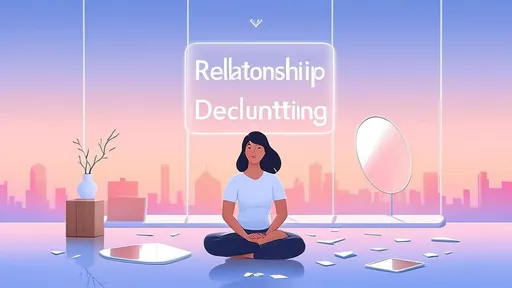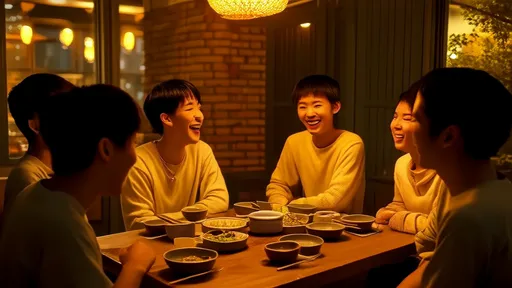In a surprising twist on workplace relationships, Japanese corporations are pioneering an unconventional solution to the loneliness epidemic: the "work spouse" system. This radical approach formalizes platonic partnerships between colleagues, offering emotional support without romantic entanglement. As Japan grapples with declining marriage rates and increasing social isolation, companies are recognizing their role in fostering human connection.
The concept builds upon the existing phenomenon of "colleague marriage" – where coworkers develop marriage-like bonds through shared professional experiences. Unlike office romances that often end in HR headaches, these relationships thrive on mutual understanding and companionship. Major firms like Mitsubishi UFJ and Rakuten have begun institutionalizing the practice through mentorship pairings and team-building exercises designed to create deep, non-sexual workplace bonds.
Psychologists observe that Japan's intense work culture leaves little room for traditional socializing. Salarymen and office ladies frequently spend more waking hours with colleagues than with family. The work spouse system acknowledges this reality by providing structured emotional support within professional boundaries. Partners might share meals, exchange small gifts, or serve as confidants for work-related stresses – all with company endorsement.
Critics argue this corporate-sponsored intimacy blurs necessary boundaries. However, proponents counter that in a society where nearly 40% of singles report having no close friends, the workplace becomes the last frontier for human connection. The system includes clear guidelines: no physical intimacy, equal participation from both parties, and voluntary participation. Some companies even facilitate "matchmaking" events where employees can find compatible work spouses across departments.
The phenomenon reflects broader societal shifts. With marriage rates at historic lows and birthrates continuing to decline, traditional family structures no longer provide the social safety net they once did. Corporations find themselves filling the void, evolving from mere employers to holistic life support systems. This trend goes beyond Japan – similar practices have emerged in South Korea's "workplace family" programs and Silicon Valley's "professional kinship" initiatives.
Early results show decreased turnover rates and improved mental health metrics among participants. One Tokyo-based IT firm reported a 27% reduction in sick days after implementing the program. Employees describe feeling "seen as whole people" rather than just workers. The system particularly benefits women and minorities who often face isolation in male-dominated industries.
As the global workforce becomes increasingly disconnected, Japan's experiment offers provocative possibilities. The work spouse system challenges Western assumptions about keeping professional and personal lives strictly separate. In an age of remote work and digital communication, perhaps what employees crave most is something no algorithm can provide – the simple human recognition that comes from having someone at work who truly knows you.
The program isn't without its awkward moments. HR departments report having to mediate when one partner becomes overly attached, or when real romantic feelings develop. Some employees complain of social pressure to participate, while others worry about exclusion if they opt out. Companies are developing training modules to help staff navigate these complex emotional landscapes.
Anthropologists note the system's roots in Japan's communal traditions, where village-like support networks once ensured no one fell through the cracks. In modern megacities, corporations are recreating that safety net in 21st-century form. The trend may accelerate as Generation Z enters the workforce – a demographic that values authenticity and emotional intelligence in their professional environments.
What began as an experiment in combating loneliness has revealed deeper truths about human needs in the digital age. As one participating employee remarked: "We spend our lives working – shouldn't we have someone to share that life with?" The answer, for growing numbers of Japanese workers, is yes – even if that someone comes with a company handbook rather than a wedding ring.

By /Jul 28, 2025

By /Jul 28, 2025

By /Jul 28, 2025

By /Jul 28, 2025

By /Jul 28, 2025

By /Jul 28, 2025

By /Jul 28, 2025

By /Jul 28, 2025

By /Jul 28, 2025

By /Jul 28, 2025

By /Jul 28, 2025

By /Jul 28, 2025

By /Jul 28, 2025

By /Jul 28, 2025

By /Jul 28, 2025

By /Jul 28, 2025

By /Jul 28, 2025

By /Jul 28, 2025

By /Jul 28, 2025

By /Jul 28, 2025